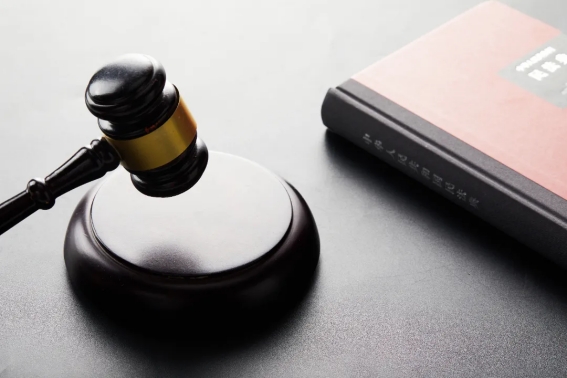Foreword
"Observing contracts" is the fundamental principle of contract law and forms the basis of the contractual legal framework. Conversely, the principle of contract modification aims to achieve fairness in contracts. The doctrine of changed circumstances was established to ensure both security and fairness in transactions. Within the framework of civil law and contract law, the principle of "strict adherence to contracts" remains the cornerstone of the contract legal system. The doctrine’s goal is to achieve fairness in contracts. Since the COVID-19 pandemic, many businesses have struggled with operational difficulties, facing risks of bankruptcy and business interruption, which have severely impacted contract performance. Currently, the doctrine of changed circumstances plays a vital role in maintaining trade stability and fairness.
I. Legislative History

The concept of the "doctrine of changed circumstances" originated in the 12th to 13th centuries from Commentaries on the Digest of Emperor Justinian, and it has been refined and developed over time within European and American law. In civil law systems, Germany’s "obstacles to the basis of transaction," France’s "theory of unforeseeability," and common law’s "frustration of contract" have brought deeper changes to the doctrine. In China’s legal development, factors for changed circumstances have been carefully evaluated. Since the adoption of the doctrine in the Interpretation of Contract Law (II) in 2009, China’s Supreme People's Court has issued supporting notices and guidelines, such as the Notice on Correctly Applying Certain Provisions of the Contract Law of the People's Republic of China to Serve the Overall Development of Party and State Affairs (Legal [2009] No. 165) and the Guiding Opinions on the Current Circumstances in Adjudicating Civil and Commercial Contract Disputes (Legal [2009] No. 40). These notices emphasize that when applying the doctrine of changed circumstances, judicial authorities should take a cautious approach, carefully distinguishing between changed circumstances and business risks to uphold fairness and statutory authority. The 2020 enactment of the Civil Code of the People's Republic of China formalized the doctrine, incorporating it into relevant legal provisions. The mechanism has undergone continuous improvement and expansion throughout this process. The Civil Code and related judicial interpretations have removed explanations related to force majeure and the "impossibility of achieving contract objectives," highlighting the duty of renegotiation and making the rules more comprehensive and reasonable. Article 32 of the Judicial Interpretation of the General Provisions of the Contract Code provides a detailed analysis of applying the doctrine in judicial practice, clarifying that pre-emptive agreements between parties cannot exclude the application of the doctrine. This provides clear guidance for the practical application of the doctrine of changed circumstances.
II. Judicial Cases of Changed Circumstances
Case 1: Hunan Provincial High People's Court (2020) Xiang Min Zhong No. 27 – Contract Dispute between Fengze Jiayuan Education and Hunan Agricultural University
In contract disputes, the doctrine of changed circumstances is used as a legal basis to modify or terminate contracts. Governmental policy documents can only constitute changed circumstances if they don’t result in inequitable performance. Regarding whether an administrative regulatory document stabilizes student dormitory fees as a changed circumstance, Chinese government authorities issued guidelines in 2005 and 2009 to regulate such fees. Given that the student dormitory at Hunan Agricultural University serves a public interest, both parties should have anticipated that dormitory costs would not lead to significant price increases. Fengze’s feasibility analysis failed to adequately consider uncertainties due to changes over time. Since Fengze's actual revenue exceeded its expenses, enforcing the contract did not contravene fairness, and the contract's objectives could still be achieved. Therefore, this case did not meet the conditions for applying the doctrine of changed circumstances.

Case 2: Sales Contract Dispute between Chuangrui Co., Ltd., and Shandong Hongxin Chemical Co., Ltd., highlighted among eight "Cases of Equal Protection of the Rights of Domestic and Foreign Parties" by the Shandong Provincial High People's Court
In this case, which involved the sale of anti-epidemic products from Hong Kong, the COVID-19 pandemic, a global emergency, significantly impacted social and economic activities in China, creating unprecedented challenges in business operations. This caused a sharp rise in the price of protective equipment, substantially increasing transaction costs for purchasing and selling epidemic prevention supplies. The court evaluated the pandemic’s impact on contractual performance, examining the influence of unforeseeable events and conditions of changed circumstances on contract obligations.
The court’s assessment, while focusing on case specifics and evidence, also considered the impact of COVID-19 and related control measures, carefully evaluating requests from parties for contract adjustment.
Case 3: Xinjiang Uygur Autonomous Region High People's Court (2018) Xin Min Chu No. 55 – Equity Transfer Contract Dispute between Zheng Beiping and Xinjiang Longmei Energy Co., Ltd.
In this equity transfer contract dispute, the Equity Transfer Agreement did not include terms for changed circumstances or contract cancellation. Firstly, regarding the expertise of both parties: as a mining company, Longmei was presumed to understand the risks involved in purchasing mining rights in a scenic area. This indicates an assumption of commercial risks associated with signing the Equity Transfer Agreement. Secondly, regarding the continuity of contractual basis: coal mining companies need foresight to adapt to policy changes, and increasing regulatory restrictions are manageable within standard business risk. While policy changes may affect mining rights, Longmei still holds exploration rights. The equity transfer’s primary objective was met when Longmei acquired 51% of the company owned by Zheng. Finally, the company’s operational difficulties reflect standard business challenges rather than an inability to meet the Equity Transfer Agreement’s goals. Thus, Longmei cannot cite potential delays in mining rights as grounds to modify or cancel the contract, bearing the contractual and business risks independently.
Conclusion
When interpreting and applying Article 32 of the Judicial Interpretation of the General Provisions of the Contract Code in the Civil Code, all factors must be comprehensively considered, including circumstances affecting contract performance, the specific demands of the parties, and the impact of force majeure or changed circumstances on performance. The principle of fairness serves as a guiding framework in judicial application. After a careful balancing of interests, appropriate measures should be adopted to mitigate loss, aimed at maintaining contract stability and protecting the parties’ lawful rights, upholding legal justice, and safeguarding contractual integrity.
Referenced Cases:
(2020) Xiang Min Zhong No. 27
(2021) Supreme People's Court Min Shen No. 5253
(2018) Xin Min Chu No. 55
(2019) Supreme People's Court Min Zhong No. 827
(2023) Jing 01 Min Zhong No. 42
(2022) Zhe 0702 Min Chu No. 1754

Author Biography
Zhou Keqiang is a trainee lawyer at Guoyao Qindao Law Firm, specializing in law, with over 10 years of experience working in related legal sectors, gaining extensive practical experience.
Zhou has expertise and significant practical experience in major infrastructure construction, corporate legal affairs, corporate compliance and risk control, civil and commercial litigation and arbitration, intellectual property, enforcement and objections to enforcement, banking and finance, bill disputes, entrusted wealth management disputes, pawn disputes, contract disputes, medical disputes, and insurance disputes.
Zhou has participated in numerous cases, including the Sheng-Yuan construction project contract case; the Sheng-De construction project case; a town owner’s cancellation case; the Zheng Energy case; a solar energy case; a supervision case in the Inner Mongolia Autonomous Region High People’s Court; a case of enforcement distribution participation in Dongsheng District People’s Court, Ordos City; a civil supervision case with the Shandong Provincial Procuratorate; a construction project contract dispute case with offshore wind power—Jinan Arbitration; a mortgage dispute involving a secured property claim for priority rights over damaged or lost collateral with the Nanjing Maritime Court; a property damage liability dispute in offshore and navigable waters with the Guangzhou Maritime Court; and a case for establishing a maritime liability limitation fund with the Guangdong Provincial High People’s Court. Zhou’s effective handling of these cases demonstrates his expertise in analyzing and defining case facts and legal relationships, as well as formulating strategies for litigation, arbitration, and enforcement.
Our team is a professional, dedicated, efficient, and experienced group of lawyers committed to providing comprehensive legal services to our clients, with precise strategies for litigation, arbitration, and enforcement.
 News Recommendations
News Recommendations
 Contact Us
Contact Us
 Phone 0531-58681777
Phone 0531-58681777
 Email GYQD@guoyaoqindao.com
Email GYQD@guoyaoqindao.com



